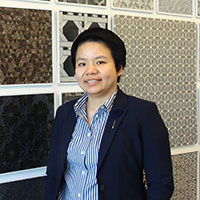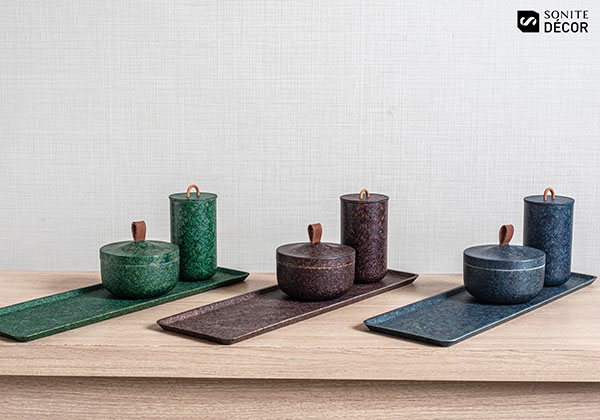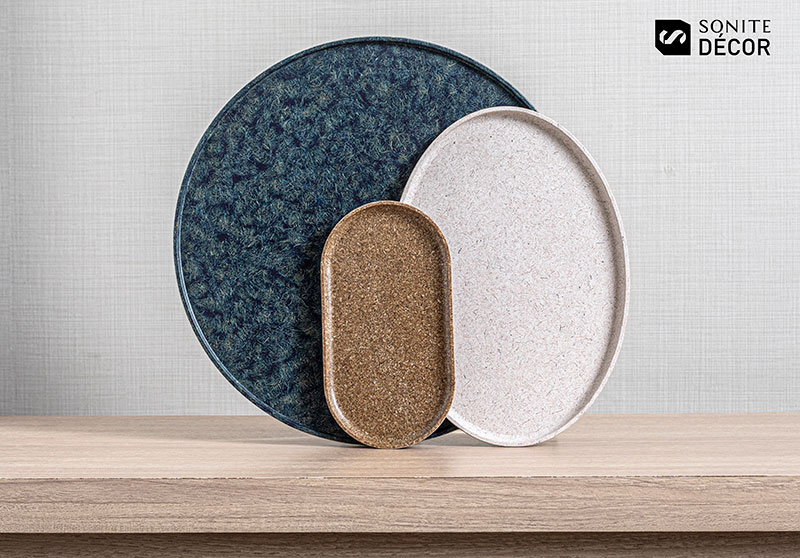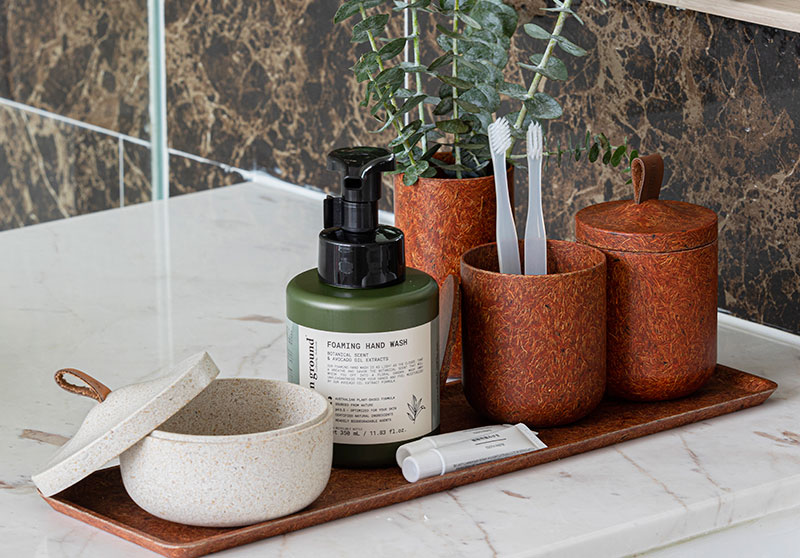
Sonite develops design and home decor materials from waste.
Sustainability is at the heart of doing business both for company and society.
Research and development is key towards lead innovation.
Established in 2007, family business Sonite originally manufactured garment accessories and buttons at its factory, before shifting to mosaics for craft work, and later to interior design and home decor.
“Today, Sonite has over 10,000 mosaic design patterns, having expanded its product line to surfaces and green products created by mixing button scraps with scapa material,” says Pripun Visetjinda, Business Development of Sonite Innovative Surfaces.
Sonite represents a smart and responsible choice for the eco-conscious consumer, having reduced the carbon footprint of its building materials after consultation with Dr Singha Intrachooto, Chief Adviser of Research & Innovation for the Sustainability Center (RISC), Thailand.
One example of this is its Java Core Products range, a collaboration with Starbucks Thailand whereby they use 40% coffee grounds to create a table top used in Starbucks nationwide. This has reduced the use of wood, and won the Design for Asia Awards 2014.
Sonite’s Green Product lines now includes Husk Décor, Coco Décor made from coconut fibre, and E-Mable made from eggshells.
“One of our projects involves husk products made from rice husk waste that we acquire from local farmers, creating an extra source of income for their households,” says Visetjinda. “We also plan to buy rice milling machines so communities can sell rice husks to Sonite. We welcome all possible approaches from agricultural communities who are interested in participating in this rice husk project.”
According to Visetjinda, research and development is key to lead innovation, a core Sonite value.
“Sonite attaches great importance to research and development,” she says. “The feasibility of each product is assessed through market research. Then once the product is launched, feedback from buyers is collected as data and insights for further analysis.”
The company also places a lot of emphasis on design, believing that shape and colour are key to develop products that people like. Last but not least, sustainability is at the heart of Sonite’s business both for the company and for society.
“We are committed to creating a circular economy and determine that within two years our production facility will be zero waste,” she says.
Currently, Sonite’s business is split evenly between domestic and international markets, the latter consisting of Asia, the Middle East, the US and the EU.
Visetjinda admires the way that Thai brands are trying to create their own identity and reflect Thainess in an interesting way. She is also full of praise for the way the DITP has provided business opportunities and support for all companies, especially to SMEs.
“We have to thank DITP for organising various business opportunities, especially online business matching,” she says. “This is very helpful.”
For more information, visit https://sonitesurfaces.com/
Photo courtesy of Sonite
Words by Natthinee Ratanaprasidhi







